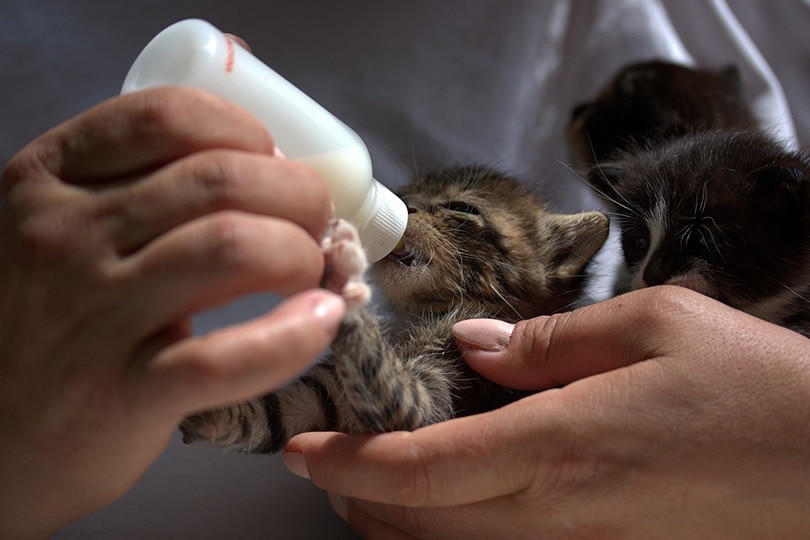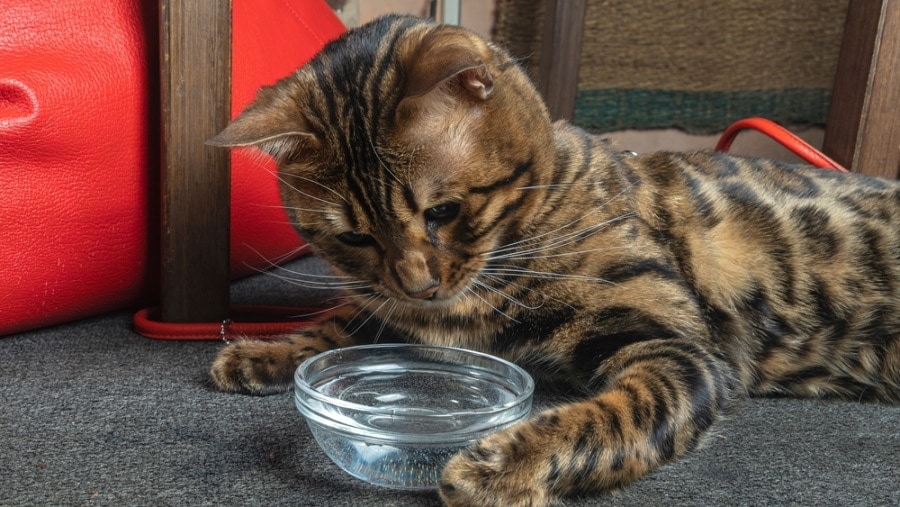How Good Is My Cat’s Memory? Vet-Reviewed Facts & FAQ
By Lorre Luther
Updated on
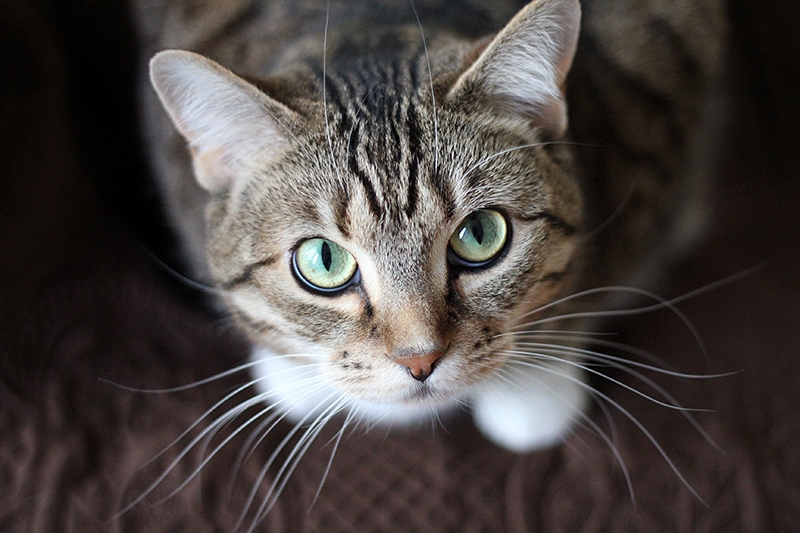
Click to Skip Ahead
Cats have both short-term and long-term memories. Short-term memory allows cats to recall and work with recently observed information. Long-term memory involves the storage and recollection of past life events. Cats have relatively limited short-term memories. While it’s clear they do have long-term memories, there’s no real scientific consensus on precisely how far back cats can remember life events and people. However, cats become attached to people and remember loved ones and companions.
Can Cats Remember Specific Events?
Cats can recall information in ways like humans. Evidence suggests our feline friends have episodic memories just like people and dogs; they can remember specific details of select past events. Episodic memory involves the ability to recreate the whats, whens, and wheres of things that happened long ago.
Scientists conducted a study in which they allowed cats to eat from two of four bowls.1 After a break, the cats were allowed to sniff around similar but empty containers. The cats spent more time investigating the bowls that they hadn’t eaten out of.
In a second experiment, cats were given access to four bowls. One bowl was empty, a second held something inedible, and the other two featured dollops of tasty food. Cats were permitted to eat from only one of the bowls containing food and then given a break. Similar but unused bowls were set out for the cats to explore upon their return.
After coming back, cats often first explored the food-containing bowl they hadn’t yet had a chance to eat from and lingered while exploring. So, it appears cats can remember specific events and their details.
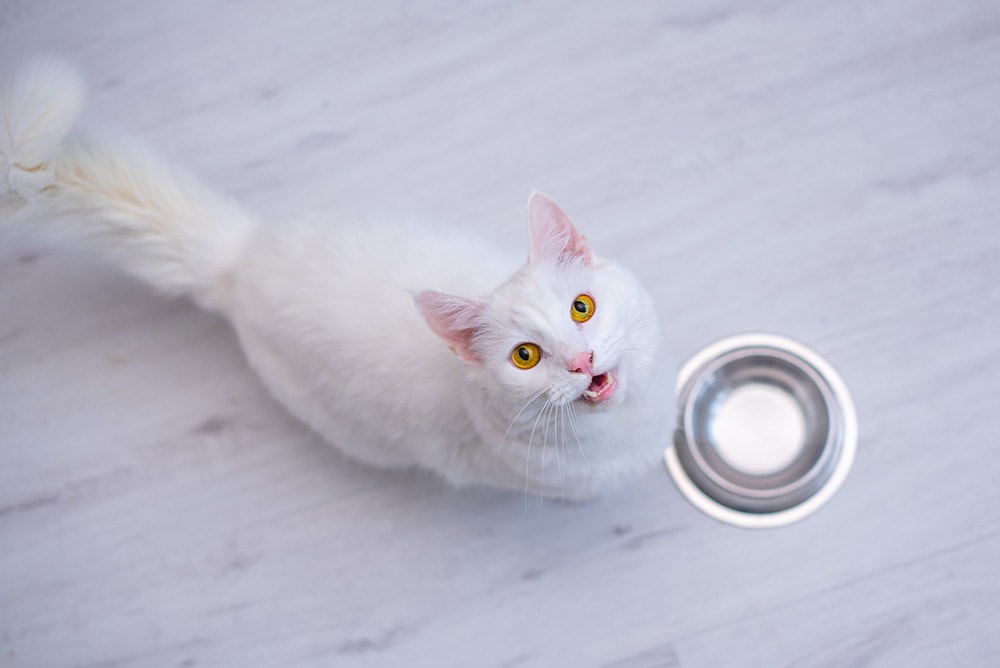
How Long Are Cats’ Memories?
Cats have relatively limited short-term or working memories. Working memory deals with information that can be quickly accessed and used to solve tasks. It’s related to information processing, problem-solving, and learning. Their ability to access and work with the information stored in their short-term memories declines relatively quickly during the first 30 seconds or so after an event. The same process occurs in dogs but generally takes longer and happens less suddenly than with cats.
When cats engage in physical activities as part of the learning process, it drastically extends the period in which they can recall and work with information learned. While it’s clear that cats can remember past events and people, scientists aren’t sure how long these memories last.
Cats recognize people when they’ve been away on vacation or even gone for a semester at school. They have been known to return home years after becoming lost, and some have traveled up to 80 miles to get back to their families. Lost cats likely find their way home using smell and perhaps geomagnetic signals, rather than memory. Their long-term memories fade and become less vivid, but not in chronological order.
What Kinds of Things Do Cats Remember?
When it comes to long-term memories, cats tend to recall events that are particularly positive or negative. Strong emotions appear to encourage events to be remembered. People who give cats lots of love and treats are not likely to be forgotten, and most felines have soft spots for memories associated with food and other basic survival needs.
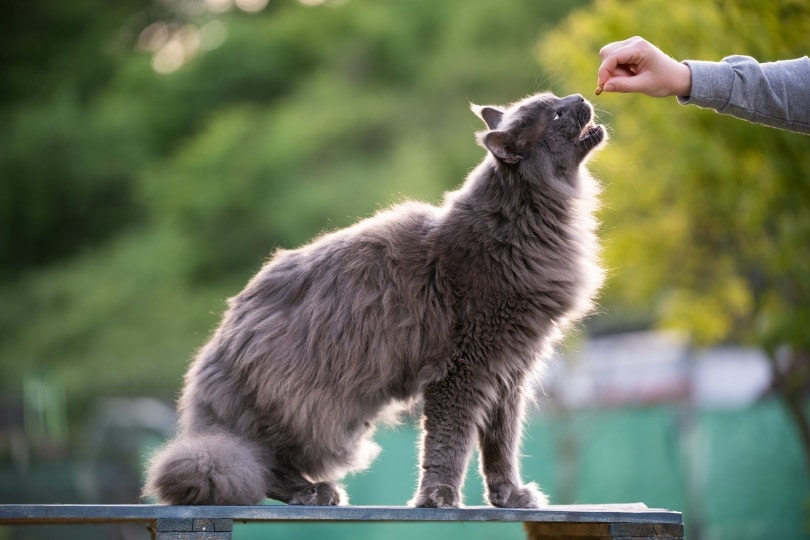
Can Cats Learn Their Buddies’ Names?
Cats can link human speech with memories of other cats! It appears that cats who live with other kitties learn their buddies’ names. Scientists invited several cats to participate in a study. One cat initially cooperated but soon decided there were more interesting activities to participate in and left the group by “escaping from the room and climbing out of reach.”2
The study concentrated on cats who live with other cats. During the experiment, pets listened to recordings of their owners calling the other resident cat’s name and then shown a picture of either their friend or a random cat. Housecats tended to look at the screen longer when the picture that followed was of a random cat, but the pattern doesn’t extend to humans. Cats often don’t seem to be terribly bothered when they hear the name David and are shown a picture of Michael, so they may not be able to call up a mental image of a specific person after hearing that individual’s name.
How Do Cats Recognize People?
Cats recognize people mostly by smell and sound, and they have fantastic senses of smell. Their noses are packed full of sensitive scent receptors and they also have Jacobson’s organs that pick up on odorless molecules that provide information about things like health and reproductive status.
Cats rely on their noses to identify each other and their people. When cats rub against you, they leave behind pheromones that mix with your scent. They use this combined scent to identify people and places that belong to their inner circle.
In a study published back in 2017, scientists found that cats can recognize the sound of their owner’s voice. Cats listened to their names being called by a stranger, followed by their owner, and scientists observed their responses. Most of the cats responded strongly after hearing their owner’s voice, leading the authors to conclude that cats can tell people apart. And yes, cats enjoy interacting with people! A 2022 study found that when it comes to rewards, cats often choose snuggles over treats.
Conclusion
Cats have relatively limited short-term memories. They’re not great at storing and recalling learned information to do things like solve problems, but it also appears that engaging in physical movement while learning extends their short-term memory significantly. While it’s clear that cats form long-term memories, scientists aren’t entirely sure how long they last. However, they suspect that emotionally powerful events are remembered more readily than mundane activities.
Featured Image Credit: Jumpstory


